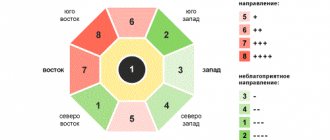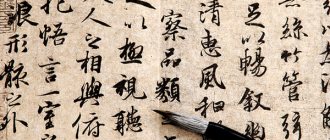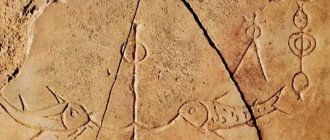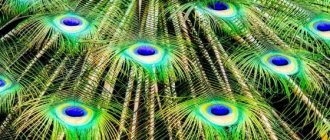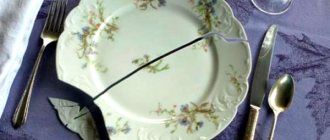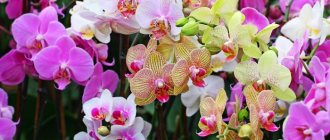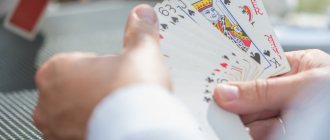It is difficult to find a person who is absolutely not superstitious. Some are afraid of black cats, others are knocking on wood or crossing their fingers for luck. What can we say about the number 13. And if it seems strange to you that someone could be afraid of combinations of numbers, then you should learn about the numerological fears of the Chinese. In this country, the attitude towards numbers is special, and sometimes this can lead to oddities or even serious problems.
♥ ON TOPIC: Why are the inhabitants of Germany called Germans and not Germans?
Foreigners are faced with the dislike of the Chinese for certain numbers, which can complicate the conduct of business. It turns out that a poorly chosen date or even a hotel floor can lead to a breakdown in negotiations. Chinese partners may become nervous when they see their car license plate number. If you come to this country, you will notice that some numbers are missing, while others are held in high esteem, and the goods associated with them are much more expensive than usual. As you already understand, the attitude towards numbers in China is completely different from ours.
♥ ON TOPIC: Who has the most followers on Instagram - 40 most popular accounts.
In China, numbers are divided into lucky and unlucky.
Many words in Chinese sound similar, but have different meanings - paronyms. In Chinese culture, even numbers are considered a good sign when in the rest of the world it is a bad sign. For example, if we are talking about flowers, it is not customary to give 2,4 or 6, etc. In this blog you will learn why 4 is the unluckiest number and 8 the happiest, as well as the meaning of other numbers and their power.
Basic provisions
If you want to understand the essence of Chinese numerology, then first of all you need to familiarize yourself with the key concepts. Briefly, the basics of this school can be summarized as follows:
- Every odd number from 1 to 10 has masculine energy. And the even number is female.
- Each number is associated with one or another element.
- There are numbers endowed with special magical energy.
- Chinese numerology uses 13 digits.
- Previously, the numbers 11, 12 and 13 had special meanings. The number 12 symbolized the beginning and end of everything that happens in the Universe. But nowadays these numbers are used as official numbers.
- If a person decides to carry out a ritual of numerological fortune-telling in accordance with Chinese culture, then it is strictly forbidden to use those meanings that are accepted in other schools.
These are the basics. What is the purpose of the Chinese school of numerology? Identify the number of a person’s destiny, then fully decipher it and determine the influence on destiny. For this, a calculation system is used that is known as the Lo Shu square. What is it?
Start over.
0 – 零- “ling”.
Zero is considered a lucky number because it is the first number, which means the beginning of beginnings. Quite simple.
1 – 一 – “yi”.
One is both a lucky and unlucky number. Happy because, to be number one, to take first place, to be a leader. On the other hand, it also means loneliness. November 11th is Singles' Day in China, and stores usually have huge sales on this day.
2 – 二 – “er”.
There is a Chinese proverb, “Good things come in pairs” (成双成对). Based on this, the Chinese love to repeat words, repeat individual characters in company names, repeat words such as happiness 囍 on decorations for weddings or Chinese New Year. This is a lucky number.
3 – 三 – “san”.
In Chinese culture, three is a significant number, as it represents the three most important stages of human life - birth, wedding and death. In addition, the pronunciation is similar to the word "to be born" (生-shēng). Three is considered a lucky number.
4 – 四 – “si”.
The unluckiest number in China is four. This is because the pronunciation is identical to the word “death” (死 – sĭ). Most elevators in China skip the number 4. Phone numbers, names, machine numbers - wherever possible, the Chinese do not use this number. Four for the Chinese is like the unlucky number 13 for us and many other countries.
5 – 五 – “wu”.
In Chinese culture there are 5 elements of beginning and harmony - earth, water, fire, wood and metal. Therefore, 5 is the number of luck and harmony. In Tienanmen Square, in the heart of Beijing, the gate leading to the Forbidden City (the largest complex of palaces) consists of five arches. In China, the whole country is divided into provinces and in each province they eat food with a certain taste, for example in the south in Shanghai they eat sweet food, in Beijing and in the north they eat salty food, in the center and east they like spicy food. There are 5 tastes in the world - salty, sweet, spicy, bitter and sour. In general, 5 is a lucky number.
6 – 六 – “liu”.
Six is considered one of the best lucky numbers because it is consonant with the word “smoothly” (溜 - liū) and “influx”, “movement”(流 – liú). Six is widely used in business because it supposedly brings good luck and wealth. It is also customary to give cash gifts with the number six - 666 Yun (Chinese currency) or 6,666 Yun. It is a good sign if the newlyweds are given such amounts, it brings wealth and balance to the family.
7 – 七 – “qi”.
Seven is known as a lucky number in China, as it symbolizes the harmony of all living things - the two elements Yin and Yang (humans) and their balance with the five elements of origin (nature) - earth, water, fire, wood and metal. In addition, seven sounds like the word “even,” and we already know that even numbers are lucky numbers for the Chinese.
8 – 八 – “ba”.
Eight is the luckiest number in China. The Chinese are known to strive for wealth and are known as the most hard-working nation. So, eight is consonant with the word “wealth”, “prosperity”, “wealth”, “success” (发 – fā). It is also a sign of infinity. Using the number 8, according to the Chinese, is a good idea everywhere, just in case. In 2003, the phone number “+86 28 8888 8888” was sold for 280 thousand dollars to China Airlines.
9 – 九 – “jiu”.
Nine is a lucky number, as it is consonant with the word “eternal.” 9 also symbolizes completeness, because it is the last single digit.
Yellow, red and green are considered colors that can bring good luck.
Yellow, red and green are considered colors that can bring good luck.
Yellow color is a symbol of imperial greatness and supreme power. The first emperor of China had a middle name that sounded like the Yellow Emperor. China has often been called the Yellow Land, and its main river is called . The skin color of the Chinese also has a yellow tint.
During the reign of the Song Dynasty (960 - 1279), yellow glazed tiles began to be used in the construction of imperial palaces. Emperors during the Ming Dynasty (1368–1644) and Qing Dynasty (1644–1912) wore yellow imperial robes. They lived in Yellow Palaces, rode in Yellow Imperial Carriages, and walked along Yellow Paths. The main official color of their flag has always been yellow. State seals were wrapped in yellow cloth. If you look at the Forbidden City from one of the hills in Beijing, you can see a yellow sea. These are yellow glazed roof tiles. Gilded copper elements and animal figures decorate many palaces.
Interesting Facts:
- The opening ceremony of the Olympic Games in Beijing took place in 2008 on August 8 at 8 hours 8 minutes 8 seconds.
- There is only one time zone in China and its name includes the number 8 - UTC+08:00.
- In 2008, 170 million children were born in China, which is 5 million more than in the previous year.
- 168 sounds like eternal success (一路發). The largest company in China operating in the field of online commerce, Alibaba, is called 1688 (Yao-liu-ba-ba) - www.1688.com.
- 514 (wu yao si) is consonant with the phrase “I am dying” - 我要死(wo yao si).
- 7456 (qi si wu liu) is similar to the phrase “You irritate me” 氣死我了(qi si wo le).
- 520 (wu er ling) is consonant with the phrase “I love you” - 我愛你 (wo ai ni).
Share
- Click here to share content on Facebook. (Opens in a new window)
- Click to share on Twitter (Opens in new window)
- Click to share on WhatsApp (Opens in new window)
- Click to share on Skype (Opens in new window)
- Click to share on VK (Opens in new window)
Written by
Chinese numbers in characters
Like letters, numbers are represented by hieroglyphs in Chinese writing. For residents of European and American countries, this is an unusual system of symbols. In addition to the fact that you need to remember how they are correctly written and pronounced, take into account that in the Chinese language they cannot be inflected by cases, numbers, or genders.
You also need to remember that in China there are two types of numerals. The usual type (form) is used in the everyday life of the Chinese. Formal recording is used in official institutions: for example, in stores (checks). Numbers in formal notation are a more complicated version of symbols.
Seven
For Chinese people, the number seven symbolizes unity. In this country, there are many wonderful fairy tales and legends in which this number is actively heard: “Meeting of Lovers” (7th day, in the 7th month), “Seven Fairies”. According to the Chinese, on the seventh day the soul of the deceased says goodbye to this world and moves to another. By the way, this number is also unique in that it is happy and favorable not only in the minds of the people of China, but also in most Western cultures.
Seven is a “male”, “yang” number.
Which floor you won't find in Beijing
Tetraphobia is a direct consequence of the popularity of Chinese numerology in the Middle Kingdom. This term refers to the fear of the number 4 and everything associated with it. In fact, every building has a corresponding floor, but you won't find that floor on the elevator board. It is not numbered four or residential premises are not placed on it.
No one lives in house No. 4 - there are no such people on the real estate market, unless they are foreigners. Instead of four, you can see the numbering “3a” or simply skipping this number for the fourth floor.
Tip: If you get into a Chinese elevator and don't see the button for the fourth floor, don't be alarmed. In most cases, it is indicated by the “3 a” button or a letter.
Combinations
- 28, 38: As eight means prosperity, twenty-eight equals to 'double prosperity', 38 being one of the most successful, often called 'triple prosperity'.
- 167, 169, 1679: In Hong Kong, seven (七) and nine (九) and have a similar pronunciation to and, respectively, two of the "five most offensive words" in Cantonese are sexual male. Six in Cantonese also has a similar pronunciation to the impolite word that is used to count the number of cylindrical objects. Therefore, 167, 169, 1679 and other creative combinations (such as the infamous "on-9-9" taboo) are dirty jokes in Hong Kong culture.
- 250: In Mandarin, 250 can mean "abnormal" if read in a certain way. 二百五 (èr bǎi wǔ), literally being the correct way to read 250 in informal conversation, is usually used to insult someone whom the speaker considers extremely stupid. Alternative ways such as 兩百五 (lǐang bǎi wǔ) and 二百五十 (èr bǎi wǔ shí) do not have this meaning. There are several different versions of the origin of the use of 250 as an insult, and it is unclear which is correct.
- 5354: "不生不死" (m saang m sei in Cantonese) is like "not alive, not dead." It often refers to something that is half dead or on the verge of death. It also means inappropriate looking in Cantonese.
- 1314: "一生一世" It is like "one life, one whole life" in both Mandarin and Cantonese, and is often used romantically, akin to "for better, for worse, for richer, for poorer, in sickness and in health until death makes us part" in English.
- 768: "七六八" (jyutping: cat luk baat), rhymes with "一路發" (jyutping: jat lou faat) in Cantonese, meaning "state completely". Alternatively, 168 "一六八" is sometimes used for the same term in Mandarin.
- 7456: In Mandarin, 7456 (qī sì wǔ liù) sounds slightly like "氣死我了" (qì-sǐ wǒ - le, "make me angry", "piss me off"), and is sometimes used in Internet slang .
- 9413: "九死一生" (gau sei yat saang in Cantonese) – nine die to one alive, meaning a 90% chance of being dead and only a 10% chance of being alive, or surviving such situations (deliverance only by luck).
- 521/5211314: In Mandarin it is declared wu er yi, it seems similar to wo ai ni. Which means I love you. 1314: also sounds like forever in Cantonese. sung yut yut sei., which means one life one death in literal terms. Therefore 5,211,314 means I love you forever.
- 748: "七四八" In Mandarin this number is declared "qī sì bā". If these numbers are stated in certain tones, it has a meaning that roughly translates to: "Why don't you go die?" "去死吧" This combination is more commonly used as an insult to others, or rather an indirect death threat. Young people may jokingly tease each other by saying "你去死吧!" Depending on the mood of the place and the way of saying this sentence, it can confer meanings ranging from joke to insult or provocation. On the other hand, any 3 digit numbers that end with 48 are like "rich for X times live" (世發) (for example, 748 is rich for 7 times live), so is usually considered lucky, with 448 and 548 being exceptions, since they are also homophones of "死先發" (Rich on death) and "唔洗發" (no need/not going to be rich).
- Any number of repeated 5s: "" (wǔ) is like an onomatopoeia for shouting and is sometimes used in Internet slang.
Western numerology system
This is the system of numerology we use today; it was formed by Pythagoras (Pythagorean numerology) - the founder of the Pythagorean school.
During the Middle Ages, his system of numerology somewhat lost its original essence and was used more as entertainment among the nobility.
Its revival occurred relatively recently - just a couple of centuries ago, but today Pythagorean numerology is considered one of the main ones in the world and is quite widespread.
Eastern numerological system
The Eastern school has been steadily popular since its inception. This is due to the uniqueness of the culture and traditions of the East, and the attitude of the people living in eastern countries towards them. The numerology of India and China has become more widespread in this direction.
The Indian (or Hindu) school of numerology is also called Vedic, although it has little connection with the Vedas themselves (the great scriptures). In the teachings of Ayurveda, there is a direct connection between a prime number and the corresponding disease of the human system.
The Chinese numerological system differs significantly from the Hindu one. Firstly, she gives her own definition to prime numbers, counts numbers differently and interprets their combinations differently.
It is noteworthy that the Chinese today widely practice this system in everyday life, living based on a system of “successful” or “unlucky” numbers and their combinations.
It is worth considering the Chinese school in more detail to understand what principle underlies its definition of numbers and interpretation of their combinations.
Features of Chinese numerology
The history of Chinese numerology goes back more than one millennium; it was founded in ancient times, and during its formation it took on various designations and forms. It is based on a symbiosis of ancient Chinese philosophy, astrology and knowledge about numbers and numbers.
Nine
The number nine in the minds of the Chinese is closely associated with emperors: government officials took exams, the results of which were divided into nine ranks, there were nine imperial awards for those who distinguished themselves; The emperor's clothes were often decorated with nine dragons (and, by the way, in Chinese mythology it was believed that a dragon has nine children). The number nine in this country symbolizes harmony. In the Book of Changes, the number 3 x 3 (that is, nine) is called lucky. The state of China itself historically has nine regions. The capital of the empire, Beijing, was divided into nine parts according to Feng Shui philosophy.
Nine is the most significant “masculine” number.
And a few more words about the symbolism of combinations of numbers.
28: "double prosperity"
38: “triple prosperity”, a symbol of great luck in material terms
167, 169, 1679: in Hong Kong, due to the similarity of pronunciation to an obscene phrase, these combinations of numbers are highly offensive (in Cantonese)
250: In Chinese, "250" can mean "idiot" if read in a certain sense
5354: "neither alive nor dead", on the verge of death; the combination of numbers 9413 also has a similar meaning
1314: symbol of unification, "one life, one death", "only death will part us"
521: "I love you"
748: this combination of numbers can be translated into Russian as “I saw you in the coffin.”
any combination of the numbers 5 in Chinese Internet slang means sadness, crying.
Tweet Share Share Send Class Link WhatsApp Pin
Chinese number magic
Three
Phonetically, the Chinese pronunciation of "three" ("san") resembles "birth". Three is a symbol of a triad, for example “Yin-Tzu-Yang” (feminine - child - masculine). In China, there are many set expressions, proverbs and sayings that use the number “three”, for example: “san sy er xin”, which can be translated into Russian as “measure seven times, cut once”.
Three is a masculine number, a sign of the Sun, a sign of Man.
Do you want to win $100,000,000?! Play the lottery with the biggest jackpot in the WORLD! →
